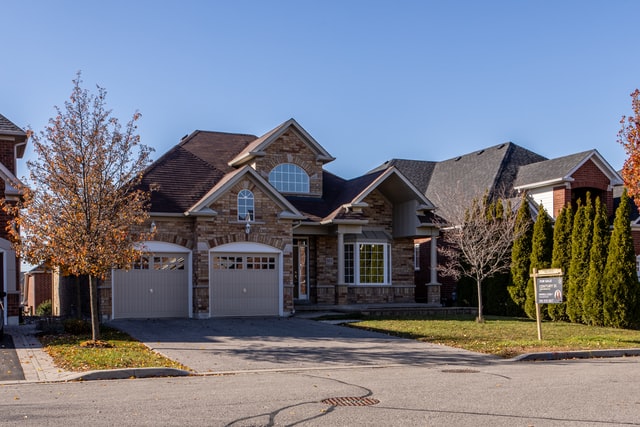
Home mortgages are an essential part of the home-buying process, yet they can be the most complex and stressful part. The following questions quickly get to the forefront of your mind:
- What mortgage options are available for me?
- Which mortgage is right for me?
- Which one best suits my budget and long-term requirements?
- And which one will I be eligible for?
Let’s explore some of the options available in the market so you know how to choose the best mortgage option for you when the time eventually comes.
Read More: Should I Buy A House Now Or Wait? 3 Factors to Consider.

In This Article
1. A Fixed-Rate Mortgage
A fixed-rate mortgage is the most popular type of mortgage, especially following the recent mortgage scams and subprime mortgage crisis. The conventional mortgage type is here to stay as it is a safe and stable option. Fixed-rate mortgages are divided into four categories. They include:
- 30-Year Fixed-Rate Mortgage
- 15-year Fixed-Rate Mortgage
- Biweekly Mortgage
- Fixed-Rate Adjustable Mortgage
The term “fixed rate” refers to the fact that you lock in your interest rate, and you can be assured that it will never change. Such loans are an excellent choice for homebuyers because you always know exactly how much your monthly payment will be for the duration of your loan. Your payments will never be affected by fluctuating interest rates or by other changes in your loan terms.
A 30 year fixed rate mortgage denotes that your payments will stretch over a period of 30 years, while a 15-year fixed rate means you’ll make the mortgage payments over 15 years. Biweekly, on the other hand, means that instead of making monthly payments, you’ll make your payments every other week. That reduces the duration of your mortgage from 30 years down to only 19.
Read More: How to Save for a House Down Payment Fast (9 Ways)
The sooner you pay off your mortgage, the less interest you’ll have to pay.
This is one of the advantages of the 15-year and biweekly mortgages. If, however, you’re on a tight budget, a thirty-year loan may be the best option because the monthly payment will be lower. You’ll, however, need to pay the loan for a longer duration and thus pay more in interest.
A fixed-rate adjustable mortgage is a type of mortgage that offers the best of the two worlds by offering a layered structure to your loan. The loan is divided into two paying periods, with the first one being a fixed-rate period and the second being an adjustable-rate period. This means that for a predetermined number of years, for instance, two, five, or seven years, your mortgage payments will be based on a fixed rate. After that, your mortgage rate will adjust according to the current market interest rate. At times, there’s an interest cap on the loan that determines how high the interest can rise.
The benefit of a fixed-rate adjustable mortgage is that you’ll start the mortgage with a very competitive lower-than-average interest rate. However, be prepared for these rate adjustments to occur multiple times if you intend to live in the home for the entire duration of the loan.
If you’re considering staying in your home only for a few years, this is the best mortgage option that will save you a lot of money in interest.

2. Adjustable-Rate Mortgages
Adjustable Rate Mortgages, also known as ARMS, have started to become popular again. This is because, like fixed-rate adjustable mortgages, borrowers are able to get at a lower interest rate. And as a result, it helps new home buyers get into a home for less money.
However, as interest rates rise and the ARM adjusts, the monthly mortgage payments also increase, which can be a problem for some homeowners who do not plan for such eventualities.
And just like with some fixed-rate adjustable mortgages, some ARMs have interest rate caps that limit how high an interest rate can go.
So if you decide to choose an ARM as your mortgage option, remember to make sure that the loan has an interest rate cap. That way, when interest rates rise, you’re not caught off-guard, and you know what to expect.
3. FHA/VA Mortgages
A Federal Housing Administration (FHA) loan is a government-backed mortgage. It is issued by a bank or a lender that has been approved by the agency.
FHA loans usually require a lower down payment than other conventional home loans, and applicants with lower credit scores can also qualify. However, if you have a good credit score, your down payment will be as little as 3.5%.
To qualify for the FHA loan, you have to meet the following requirements:
- You intend to make the house your primary residence
- You must live in the property between 12 and 24 months after purchasing it.
A VA loan is a home mortgage backed by the Department of Veteran Affairs and is probably one of the most valuable military benefits. But, as you might have figured out by now, it’s only available to active servicemen, veteran members, and surviving eligible spouses.
If you qualify for a VA loan, you could get a $0 down payment home loan.
So, which is the best mortgage option?
Like most questions in life, the general answer is ‘it depends.’
It depends on:
- How long you intend to live in the house
- Your personal goals. For example, if you’d like to pay off your mortgage by the time you retire, and your retirement is in 15 years, then you’ll be forced to choose the 15-year fixed-rate mortgage.
But if this isn’t the case for you, I would recommend an FHA loan or a 30-year fixed-rate mortgage.
Reasons to choose an FHA loan.
The reasons for choosing an FHA over conventional loans are pretty obvious:
- Minimum down payment: You can qualify for a loan with as little as 3.5% down payment.
- Low credit score requirements: A credit score as low as 580 can qualify you for a home loan with only a 3.5% down payment. There’s no need to worry if you have a lower credit score. You’ll still qualify for a loan if you have a credit score between 500-579. You’ll just need to save a bit more money for the down payment as you’ll be required to have a minimum of 10%.
- Lower interest rates: FHA loans tend to offer more competitive interest rates than conventional loans. This is because FHA loans are backed by the government, which decreases the risk on your lender.
- Low Debt-to-Income(DTI) ratio: General FHA guidelines require a DTI ratio of 43%. However, higher DTI ratios are allowed if the borrower can meet additional compensating conditions like steady employment, having cash reserves, or residual income.
While an FHA loan sounds too good to be true, it also has its drawbacks, the main being compulsory mortgage insurance despite the amount of down payment. The mortgage insurance payments last at least 11 years or until you refinance to a conventional loan. For this reason, FHA loan payments might end up being higher.
If you have a credit score of 620 or higher (preferably 720), you might find that a conventional 30-year fixed-rate mortgage is less costly.
Read More: Buying a First Home: Are You Ready to Buy a House?
Conclusion
If you’re planning to buy a house, carve out some time to do your research first and then consult with a qualified and reputable lender. Purchasing a home is an exciting and enjoyable experience. And when you understand all your options, you can approach the buying process with confidence.

















